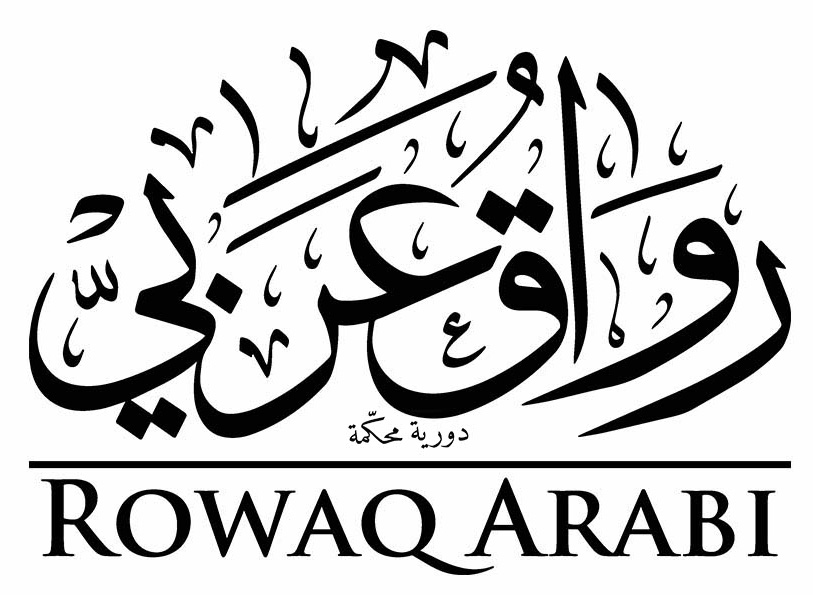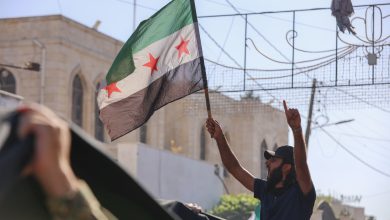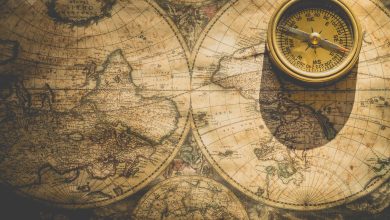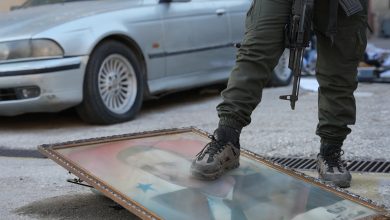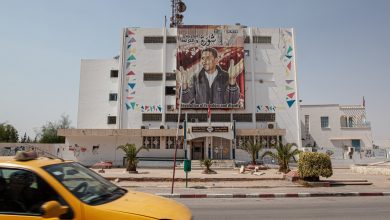Views: The Struggles of Musicians in Syria; Politics, Control, and Resilience
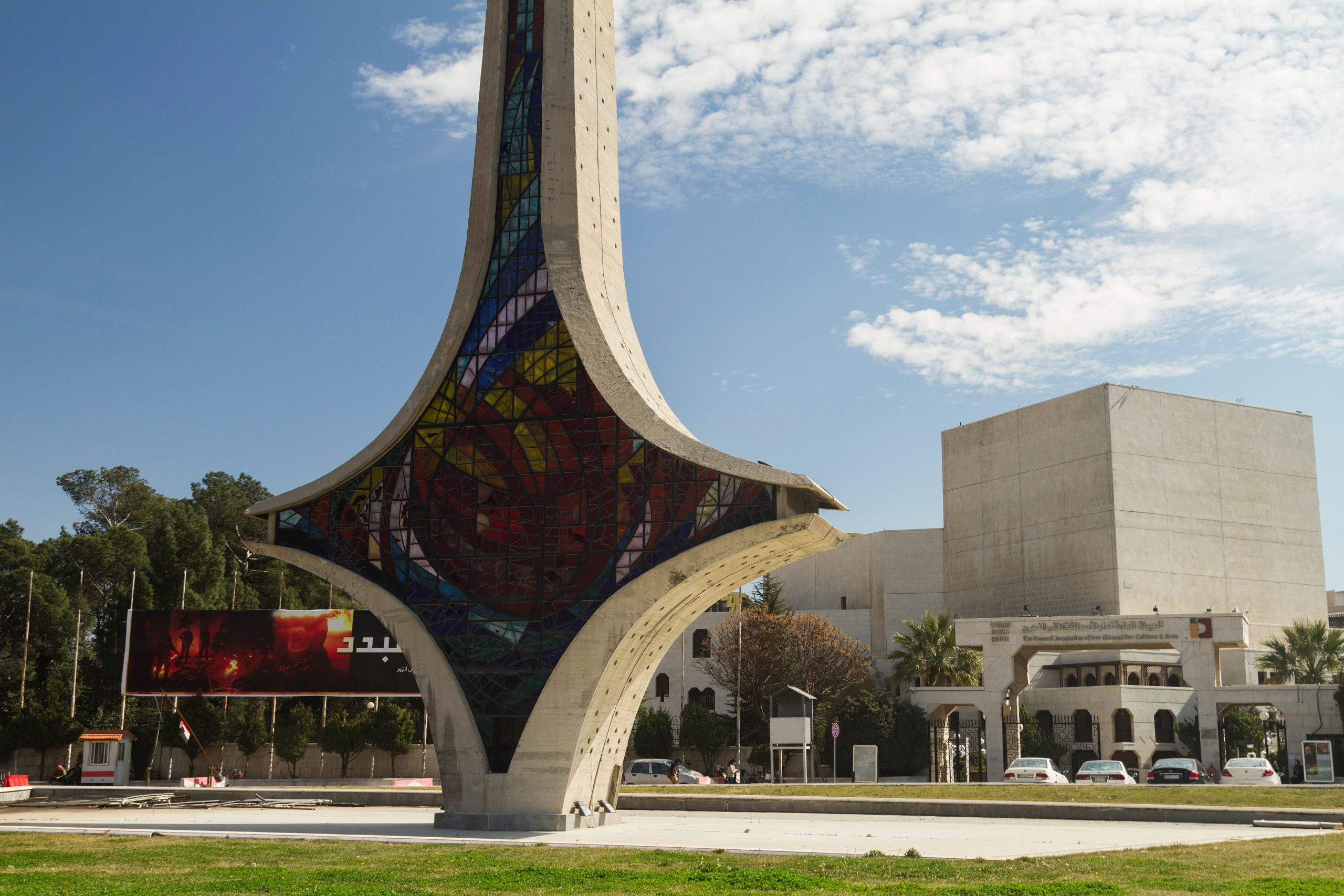
Citation: Aldardari, Sima (2024) ‘Views: The Struggles of Musicians in Syria; Politics, Control, and Resilience’, Rowaq Arabi 29 (2), pp. 221-230, DOI: 10.53833/RJAJ1187.
Music is a universal practice that is part of our everyday lives and brings joy and commonality across cultures. It is powerful; on one hand, it can unite and uplift, while on the other, it can conquer, divide, and oppress. Under authoritarianism, music is often used as a tool in the propaganda machine of the state, and Syria is no exception. This article presents a glimpse of the obstacles musicians face in Syria and explores the relationship between music and politics while shedding light on the different struggles they face in trying to develop their careers. It first describes the relationship between music and politics, then provides an overview of the political structure in Syria. This contextual background provides a framework for understanding the experiences of three Syrian artists—Malek Jandali, the renowned pianist and composer, Rashid Al-Najjar, a singer from Aleppo, and another musician who is anonymised for security reasons—based on open-ended online interviews conducted in 2019. The article aims to shed light on the constraints faced by Syrian musicians, including what Paulo Freire refers to as ‘banking education’, as well as their different methods of resilience. Through their music, the artists engage in various forms of ‘counter-power’,[1] which Freire describes as conscientização or critical consciousness.
Music, Politics, and Banking Education
‘It is no longer a matter of asking “Which music is political?”, rather “What are the particular politics of a music and how is it political?”’.[2] John Street argues that music and politics should not be perceived as distinct entities that interact occasionally, but as ‘extensions of each other’.[3] This is because music ‘embodies political values and experiences’, organising ‘our response to society as political thought and action’. He asserts that music does not just provide a vehicle for political expression; it is that expression.[4] Due to its power, states try both to repress and harness music. Street refers to these processes as ‘music policies’, which are political due to the involvement of state agents and their efforts to infuse music with specific values and principles.[5]
Cultural production and power are inseparable, as music and politics are inherently linked, leading states to both fear and exploit music through censorship and propaganda for their own ends.[6] Music also plays a significant role in shaping nationalism and national identity, and states ‘announce themselves in musical form…(and) the national anthem is the typical example.’[7]
I apply Freire’s concept of ‘banking education’ to Syria’s top-down art policies, where education is ‘an act of depositing’ and ‘the teacher issues communiqués’ that students ‘receive, memorize, and repeat.’[8] In this context, students are merely receivers, which diminishes their ‘creative power’ to serve ‘the oppressors, who care neither to have the world revealed nor to see it transformed’.[9] The resulting relationship is one of domination rather than partnership, mirroring the power dynamics in authoritarian states. However, according to Freire, when people become aware of these constraints and take action against them, this constitutes conscientização; ‘the action and reflection of men and women upon their world in order to transform it.’[10] In Syria, music policies, including education and production, also operate through banking education, as will be demonstrated through the experiences of the Syrian musicians interviewed.
The Politics of Music in Syria
Syria is often described as the cradle of civilisations,[11] and in 2008, Damascus was crowned the ‘Arab Capital of Culture’.[12] This event made Syria officially a regionally and internationally acknowledged city of cultural creativity. However, the production of arts in Syria, specifically during its modern history, has also often been affected by control and politicisation.
In 1971, Hafez al-Assad began to rule Syria ‘following a military coup in his own party.’[13] With a strong grip on political life backed by a pan-Arab national ideology, al-Assad remained in power until 2000, when his son Bashar became president following his death. As authoritarian rulers, both presidents used various mechanisms to maintain their control of the public, and the Baath party was able to organise its ‘presence in every social force,’ including cultural production.[14]
Through the top-down approach of banking education, the Syrian state imposes its ideologies using creative tools such as music, banners, images, and literature to enforce a national identity aligned with its vision of Syria. Rahaf Aldoughli argues that nationalist songs have constructed ‘a particular perception of national belonging and identity’ and are considered ‘an important component of Syrian oral culture.’[15] This national identity is male-centric, excludes women,[16] and views the nation as a family, with Hafez and Bashar as the fathers and leaders. Therefore, in Syria, how much you ‘worship’ these rulers, even via art, ‘determines who you are as a citizen.’[17]
During the inauguration of ‘Damascus, Capital of Arab Culture 2008’ at the al-Assad House for Culture and Arts, President al-Assad gave a speech emphasising the political nature of music and cultural production:
Damascus, as the Capital of Arab Culture, means being a capital of Arab dignity, granting us a strong sense of national and human pride… For Damascus, the Capital of the Culture of Resistance, which is an intrinsic feature of our Arab culture. It is a culture of freedom and the defense of freedom, a culture of resistance, and a culture of creativity, for our freedom is a condition for our creativity, and creativity cannot be separated from freedom… Damascus opens its heart to those who come to it with their hearts and closes its doors to those who come to it bearing swords.[18]
By framing Damascus not just as a centre of culture but as a ‘Capital of the Culture of Resistance’, al-Assad intertwines cultural identity with political resistance, particularly against perceived external threats. This rhetoric serves to align the Syrian state’s political stance with a broader Arab identity. By doing so, he casts the Syrian government as a protector of not only Syria but also of Arab culture at large, positioning the state’s political resistance as a cultural imperative. This politicisation of music and culture transforms them from forms of artistic expression into vehicles for state ideology, reinforcing the government’s authority and legitimacy.
In essence, al-Assad’s speech exemplifies how authoritarian states use cultural events to propagate a narrative that conflates political power with cultural and national identity. Music and culture are thus not just celebrated for their intrinsic value but are harnessed to serve the state’s broader political objectives, portraying the state as the guardian of both cultural heritage and national sovereignty. Hence, the Syrian state promotes ‘national folklore and classical traditions’ for ‘the construction of an official Syrian national culture’ in order to support claims such as those described by President al-Assad in his above-mentioned speech.[19] These methods present Syria ‘as the home for Arab secularism, pan-Arab socialism, and as the caretaker and promoter of Arab and Islamic cultural heritage’.[20]
Art production, including theatre, music, television, and literature, is constantly under scrutiny and censorship in Syria. The few productions that critique politics are no exception. Asaad al-Saleh argues that ‘the regime has designed the censorship system in such a way as to indicate that there is a space for freedom, but falsifies the very meaning of freedom itself by making it controlled and without a tinge of people’s choice in it.’[21] Miriam Cooke describes these ‘free spaces’ as tanaffus (breathing), and finds them dangerous. She argues that although this tanaffus provides a sense of shared awareness of the oppression, ‘it allows injustice to persist’ as the ‘reader or spectator can breathe deeply for a moment and then return to life as it was without thinking about changing it’.[22]
Apart from these tanaffus opportunities, usually visible in some television series or in plays, the state censors art production using several institutions, with the main ones being the Ministry of Culture and the Ministry of Information. For example, the Ministry of Information is the ‘chief censor of books’ and ‘requires all book publishers and importers to obtain a Muwafaqa (permit) before the publication can be released’.[23] Major art productions are also patronised by local branches of the Baath party. Through these ‘avenues of official patronage’, the state promotes certain images of Syria and limits other opposing discourses.[24] Therefore, art is encouraged when it praises the leader and/or opposes Western imperialism and Israeli occupation but is suppressed otherwise.[25]
The Artists
Exploring the politicalisation of music also involves examining the ‘everyday struggles of cultural survival’.[26] Syrian artists create music for diverse reasons: to shed light on Syria’s history, to voice political views, to preserve folkloric music, to express emotions, and/or simply to earn a livelihood. This article investigates these motivations against the backdrop of authoritarianism, presenting the artists’ experiences as narrated by them. It also outlines elements of their biographies to provide context and offer a deeper understanding of their stories. One of the artists is fully anonymised for security reasons and fourth female artist was originally interviewed for this research but chose to withdraw for personal reasons. As a result, while the study highlights important experiences, it lacks perspectives from female musicians.
The first musician is Malek Jandali, a world-renowned Syrian American pianist and composer born in Germany in 1972. Raised in Homs after moving back from Germany with his family at a young age, Jandali’s parents arranged for him to learn music from a trumpet teacher. As a high school student, he would travel to Damascus on Fridays for one hour to study at the Music Institute in Damascus, which was one of the only two available music institutes in Syria, with the other being in Aleppo. After graduating from high school, he enrolled at the Higher Institute for Music in Damascus, but he left after a year and a half, having failed to graduate due to neglecting the class on nationalism. He then recorded a repertoire in Beirut, sent it to various universities, and received a scholarship offer to the United States. At nineteen he left Syria, telling his parents at the airport that he would never return. Eighteen years later, he briefly returned to Damascus for his first and last performance.
Jandali composed six albums and currently resides in New York City and Atlanta. He is a political activist and humanitarian, using his music to highlight Syria’s history, including the story of Ugarit, and to amplify the voices of Syrians. The music of Ugarit refers to some of the oldest known musical notations in the world, discovered in the ancient port city of Ugarit, flourishing around 1400 to 1200 BCE, which is now in Ras Shamra in Syria.[27] The music in Ugarit was recorded on cuneiform tablets, written in the Hurrian language, and is considered one of the earliest examples of written music.[28] Jandali is also the founder of Pianos for Peace, a U.S.-based charity that unites people through music. He received the 2014 Global Music Humanitarian Award and was honoured the following year by the Carnegie Corporation of New York as a Great Immigrant—just two accolades in his extensive list of achievements, awards, lectures, and influences.[29]
The second musician is Fady, a singer, songwriter, producer, and composer from rural Damascus. Fady moved to Damascus at the age of eighteen to pursue his bachelor’s degree in politics. Unlike many of his peers in the music scene, he did not attend a music institute. Instead, his foray into the music world began in childhood, singing Islamic religious chants in mosques and gatherings. Upon moving to Damascus, he started searching for musicians and eventually formed an alternative rock band. In 2011, he was forced to relocate to Lebanon for his safety, and a few years later, he undertook a perilous journey by sea to Europe, where he is now based.
The third musician is Rashid Al-Najjar[30] who hails from Aleppo, where he studied music at the Institute for Sabah Fakhri and sang in the choir. Rashid is a staunch supporter of traditional or turath music, which Jonathon Holt Shannon describes as ‘authentic’ music, or tarab.[30] While in Aleppo, Rashid worked to record old songs (muwashahhat) to preserve them in case they were lost amidst the turmoil that engulfed Syria after 2011. He stayed in Aleppo until 2016, when, at the age of 22, he moved to Beirut to pursue a music career after his home studio was destroyed in the war.
Becoming a Musician in Syria: Clientelism, Control, and Urban-Favouritism
The politicisation of music in Syria, characterised by censorship, suppression, and patronage networks, has deeply affected the lives and careers of artists. Exploring the experiences of three musicians reveals how they confront and navigate these challenges within a restrictive environment.
While studying at the Higher Institute for Music in Damascus, Jandali criticised its lack of strategy and curriculum, stating that its primary agenda was to serve the government. He recounted his experience with banking education, as the Institute compelled him and his peers to participate in choir performances, play various instruments for the Syrian National Symphony, rehearse nationalist songs, and perform at pro-government events. He reflected that ‘the strategy was to serve the dictatorship and not benefit the students… I was the best pianist there, yet I was forced to sing and play the French horn… the French horn! Can you imagine?’. Lisa Wedeen explains that in Syria, ‘power manifests itself in the regime’s ability to impose its fictions upon the world… No one is deceived by the charade, but everyone’, like Jandali, ‘is forced to participate in it’.[32] Jandali asserts, ‘the strategy of the Institute was to serve the dictatorship, not benefit the students’. Thus, he experienced banking education whereby lessons are enforced on pupils to suppress critical thinking and creativity. Tragically, this environment led one of his colleagues to suicide. Jandali believes this friend, who came to Damascus to study piano, was compelled to abandon his dreams for the nation’s goals.
Apart from banking education, music in Syria is also politicised through censorship. As Street notes, ‘the urge to censor music for fear of its effects is as old as music itself.’[33] Authoritarian states have long employed censorship to suppress political expression and prevent challenges to their legitimacy.[34] Fady also experienced this, stating that
As a musician, you have two options. The first is through official channels, which involves heavy censorship and intervention that alters your work’s essence. If you produce music independently, the authorities will know about it as soon as you release a song. And it’s not a joke. Anyone familiar with Syria knows it’s no joke. Nobody takes that risk.
In Syria, surveillance and censorship are enforced through the intelligence apparatus and patronage networks, which extend into the music industry. At the Higher Institute for Music, Jandali encountered corruption, patronage, and elitism. He observed that the patronage networks were restricted to those affiliated with the state and based on area affiliation, primarily with the capital Damascus.
Since Jandali was neither part of this network nor strove to be part of it, this was enough to shun him from the music industry. In 2010, after an eighteen-year hiatus in the U.S., Jandali returned to Syria to perform his album Echoes from Ugarit, marking both his first and last concert in the country. Upon his return, he faced significant resistance from various individuals and institutions, largely due to his lack of affiliation with the state’s patronage system. He noted, ‘All the difficulties I faced were calculated’. Despite navigating numerous bureaucratic channels and encountering repeated setbacks, he eventually secured approval from Asmaa Al-Assad, the First Lady.
Jandali remarked, ‘Once I received approval from above, from their God, everyone wanted to engage with me. Music itself has no politics, but Assad and his clan do’. Despite this approval, he continued to face patronage-related obstacles. Many officials and musicians were uncooperative and did not want to attend the concert, prompting him to invite all the ambassadors in Damascus to the concert. He also enlisted a renowned Russian conductor, who was deliberately shunned by local musicians and politicians. During rehearsals, Jandali encountered further disruptions, with some musicians repeatedly leaving the room and causing disturbances.
Street argues that policy-making agencies and their personnel not only shape but also embody specific interpretations of the political significance of music.[35] This framework explains why the Jandali encountered a lack of support from both government officials and musicians for his performance. Unable to secure a political representative to introduce him on stage, he sought assistance through diplomatic channels, reaching out to the U.S and a German embassy in Damascus. This triggered a backlash from the Syrian government. The following day, Najah al-Attar, the Vice President at the time, summoned Jandali and expressed anger over his connection with these diplomats, labelling him a traitor before expelling him from her office. Reflecting on the incident, he noted, ‘Within 24 hours, I left the country, and the next year the revolution happened’. After 2010, Jandali openly voiced his opposition to the government. As a result, in 2011, security forces raided and destroyed his home in Homs, severely brutalising his parents and forcing them to flee the country.[36] His website was also hacked that year by the Syrian Electronic Army, a group of pro-government internet hackers, who replaced his website with an image of Bashar al-Assad and a message branding Jandali as a traitor.[38]
Fady and Rashid, both from outside of Damascus, also faced discrimination as well as struggled in the music scene due to these clientelist networks. According to Rashid, the ‘control of a specific group of musicians with connections to the government’ is the main cause of ‘inequality in opportunities’. Additionally, he struggled to establish a career in Damascus as someone from a different province due to urban favouritism, noting that ‘opportunities are based on money and connections, especially with the government and those from the capital’.
Another obstacle highlighted by the musicians is the lack of production houses in Syria, likely a consequence of the government’s monopoly over cultural production. This has driven them to leave Syria in pursuit of better career opportunities and safety.
The Role of the Artist and the Aesthetics of Authenticity
According to Street, ‘it is not enough to be able to speak up; you must be able also to speak for a people of a cause; you must represent them’.[38] When asked about their roles as artists in society, the responses of the interviewees varied. For Jandali, music is more than entertainment; it is about ‘spreading peace and uniting people under their shared human values’ and ‘fighting oppression’. Fady once shared similar views but has since become more uncertain. He reflected,
This used to be an easier question for me to answer, but now I don’t know. I don’t know if we should have a role. I used to believe musicians should advocate for change, especially when I wrote more political songs. Now, things are just complicated. For me, music is now just something for joy. Maybe it’s just a phase, but I can’t see that other aspect anymore.
Rashid also believes that music should address social issues and criticises popular music today for failing to do so. He attributes the growing influence of popular or ‘inauthentic’ music to the government’s tight grip on art production, stating, ‘When Syrian artists are provided safety and the right opportunities, they can truly make a difference’. Shannon finds that there is a struggle between maintaining authenticity and tradition against the strong wave of mainstream and popular music in Syria. He refers to this as ‘aesthetics of authenticity’, which are ‘practices of cultural creation and consumption that promote the formation of social worlds based on a dichotomy of the authentic, perceived as true and good, and the inauthentic, perceived as false and bad.’[39] Shannon finds that this decay is a significant theme among Syrian musicians when discussing Syrian culture.
Popular music is widely listened to across the Arab region and in Syria. On the other hand, classical Arab music, or ‘music associated with high culture and the classical Arabic language’ has a smaller audience despite its acknowledged importance in society.[40] However, there is no consensus on what constitutes authentic music, yet there is a consensus on what does not.[xli] Aesthetic judgments carry ethical implications and constitute ‘a moral discourse’,[42] as labelling art as ‘authentic’ or ‘beautiful’ is often linked to moral correctness and proper behaviour. Conversely, labelling something as ‘inauthentic’ or ‘ugly’ implies morally inappropriate behaviour. Rashid categorises popular music as ‘inauthentic’ in contrast to what he views as ‘meaningful music’; culturally and historically rich traditional music.
On the other hand, Fady does not dismiss popular music as inauthentic. Instead, he views the issue through a supply and demand lens
In the early days, I used to complain like every other independent musician that mainstream music is bad and all about money. Now I see it differently. It’s like any other public good—there’s a market, demand, and supply. If we want to change mainstream Arabic music, protesting the companies isn’t the solution; we need to change the kind of demand.
For Jandali, authentic music is deeply rooted in Syria’s history and the struggles of its people. Shannon argues that music should not only be seen as an art form but as a mediating practice that shapes conceptions of society and self.[43] Therefore, the interviewees position their creativity in relation to mainstream art, with differing views on what constitutes authentic music—some link it to political freedom, others to quality, creative independence, or history.
Still, in the face of numerous challenges, including the government’s tight control over cultural production and urban favouritism, the artists found ways to express their voices. Street argues that the state cannot control all cultural productions. As Keith Negus notes, ‘even a state with as much apparent political power as Nazi Germany could not control the production and consumption of music in a straightforward or effective manner’.[44] When the state and the Music Institute denied Jandali’s concert, he produced a music video and aired it on Satellite TV, with his song playing around seventy times a day across the Arab world. By doing so, he engaged in ‘counter power,’ reclaiming his voice through resilience outside the boundaries set by the state.[45] And in 2013, he launched an ongoing world tour titled ‘The Voice of the Free Syrian Children’. Fady avoided studying and working with state institutions and reduced the risk of state violence by using a pseudonym for his music. Once outside Syria, he used this platform to record songs that reflected the political and social conditions of the time and continues to explore his musical style in exile while Rashid committed himself to reviving Syrian music by focusing on singing tarab.
Conclusion
The relationship between music and politics in Syria reveals a complex, oppressive dynamic between cultural expression and state control. This article explores the challenges faced by three Syrian musicians under an authoritarian regime where music serves both as a propaganda tool and as a medium for resistance. Further research is needed to examine the gendered dimensions of these experiences, as this study focuses only on male musicians. Nonetheless, the experiences of Jandali, Fady, and Rashid highlight how music is politicised under authoritarianism via the Syrian government’s use of banking education, censorship, and urban patronage networks. While the artists face creative independence challenges, economic hardships, urban favouritism, and competition with popular or ‘inauthentic’ music, their resilience emphasises the enduring power of music as political expression and cultural survival. In building independent music careers—even at the cost of exile—they embody conscientização, or critical awareness.
Ultimately, this article shows that while music in Syria is heavily politicised, it also allows artists to negotiate their societal roles, develop their identities, confront oppression, preserve their culture, and engage in broader social justice discourses. As these musicians navigate their craft amid adversity, they not only preserve Syria’s rich cultural heritage but also challenge the structures that seek to control it, though they pay a heavy price for doing. When asked why he was determined to perform in Damascus despite numerous obstacles, Jandali stated, ‘I wanted to do it because of the Ugarit story. It has to be in Syria. I even took a piano and played it in Ugarit. It is my culture; it is my history’.
[2] Hutnyk, John, and Sanjay Sharma (2000) ‘Music and Politics: An Introduction’ Theory, Culture & Society 17 (3), p. 56.
[3] John Street (2012) Music and Politics (Cambridge, UK: Polity Press), p. 1.
[4] Ibid.
[5] Ibid., p. 40.
[6] Ibid., p. 21.
[7] Ibid., p. 25.
[8] Freire, Paulo (2000) Pedagogy of the Oppressed, Translated by Myra Bergman Ramos. 30th Anniversary ed (New York: Continuum). Originally published 1970, p. 72.
[9] Ibid., p. 73.
[10] Ibid., p. 79.
[11] Chenevière, Alain (2002) Syria: Cradle of Civilizations (Stacey International Publishers: London).
[12] Al Jazeera (2008) ‘Assad Inaugurates Damascus as Capital of Culture’, https://shorturl.at/G5oV7.
[13] Issa, Shaden (2016) ‘Ibrahim Qashoush’s Revolutionary Popular Songs: Resistance Music in the 2011 Syrian Revolution’, Popular Music and Society, p. 3.
[14] Hinnebusch, Raymond (2002) Syria: A Revolution from Above (London: Routledge/Taylor & Francis Group), p. 84.
[15] Aldoughli, Rahaf (2018) ‘The Symbolic Construction of National Identity and Belonging in Syrian Nationalist Songs (from 1970 to 2007)’ Contemporary Levant, 4 (2), p. 142.
[16] Ibid.
[17] Ibid., p. 153.
[18] Syria RTV (2013) ‘President Assad’s Speech at the Damascus Arab Capital of Culture Celebration’, YouTube, 15 July 2013, https://www.youtube.com/watch?v=XzOHsuKe3oM&t=66s.
[19] Jonathan Holt Shannon (2006) Among the Jasmine Trees: Music and Modernity in Contemporary Syria (Middletown, CT: Wesleyan University Press), p.10.
[20] Ibid.
[21] Al-Saleh, Asaad (2016) ‘The Ministry of Culture in Syria: History, Production and Restriction of Official Culture’, Journal for Cultural Research 20 (2), p. 145, https://doi.org/10.1080/14797585.2015.1122411.
[22] Cooke, Miriam (2007) Dissident Syria: Making Oppositional Arts Official (Durham: Duke University Press), p. 72.
[23] Al-Saleh, Asaad (2016), p. 144.
[24] Jonathan Holt Shannon (2006), p. xxiii.
[25] Al-Saleh, Asaad (2016), p. 144.
[26] Hutnyk and Sharma (2000), p. 57.
[27] The Metropolitan Museum of Art (2004) ‘Ugarit,’ Heilbrunn Timeline of Art History, https://www.metmuseum.org/toah/hd/ugar/hd_ugar.htm.
[28] Ibid.
[29] Malek Jandali’s official website, https://malekjandali.com/.
[30] Rashid Al-Najjar’s Facebook account, https://www.facebook.com/rashid.al.najjar/.
[31] Jonathan Holt Shannon (2006).
[32] Wedeen, Lisa (1999) Ambiguities of Domination: Politics, Rhetoric, and Symbols in Contemporary Syria (Chicago: University of Chicago Press), p. 73.
[33] John Street (2012), p. 9.
[34] Linz, Juan J. (1964) Totalitarian and Authoritarian Regimes (New York: Wiley), p. 304.
[35] John Street (2012), p. 40.
[36] Sterling, Joe (2011) ‘Musician: Syrian Security Raids Family Home,’ CNN, https://edition.cnn.com/2011/09/24/world/meast/syria-jandali/index.html.
[37] Jandali, Malek (2011) ‘The Musician Malek Jandali’s Website Hacked | Al-Jazeera,’ YouTube, https://www.youtube.com/watch?v=PdFn3PTJZac.
[38] John Street (2012), p. 42.
[39] Jonathan Holt Shannon (2006), p. xvi.
[40] Ibid., p. xviii.
[41] Ibid., p. xx.
[42] Ibid., xxiii.
[43] Ibid., p. xviii, xix.
[44] Negus, Keith (1997) Popular Music in Theory: An Introduction, 1st U.S. ed. (Hanover, NH: University Press of New England), p. 208.
[45] Castells, Manuel (2007).
Read this post in: العربية
